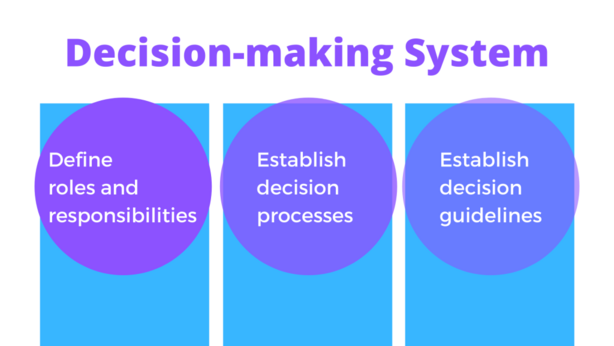Upgrade & Secure Your Future with DevOps, SRE, DevSecOps, MLOps!
We spend hours on Instagram and YouTube and waste money on coffee and fast food, but won’t spend 30 minutes a day learning skills to boost our careers.
Master in DevOps, SRE, DevSecOps & MLOps!
Learn from Guru Rajesh Kumar and double your salary in just one year.

Have you ever been faced with a tough decision and wished there was a way to make the process easier? Decision Management Systems (DMS) are here to do just that. DMS is a technology-driven approach that simplifies complex decision-making processes by breaking them down into manageable steps. In this article, we will explore what DMS is, how it works, and its benefits.
What is Decision Management System (DMS)?
A Decision Management System (DMS) is a set of tools, processes, and technologies used to automate and streamline complex decision-making processes. DMS has the ability to analyze large amounts of data and provide actionable insights to help organizations make informed decisions. The system provides a framework for decision-making that is consistent, transparent, and auditable.
How does a Decision Management System work?

A DMS works by using data and rules to make decisions. It first collects data from various sources, such as databases, spreadsheets, and external sources. The data is then analyzed using analytics tools to identify patterns and trends.
Once the data has been analyzed, decision models are created, which define the rules and logic to be applied when making decisions. The rules are then implemented using rules engines, which automate the decision-making process.
The DMS also provides reporting tools, which enable organizations to monitor the effectiveness of the system and make changes as needed.
Why do organizations need a Decision Management System?
Organizations need a DMS for several reasons. First, it enables them to make data-driven decisions, which are more accurate and consistent than decisions made based on gut instincts.
Second, a DMS can help organizations improve their operational efficiency by automating decision-making processes, which reduces the time and resources required to make decisions.
Third, a DMS can help organizations comply with regulatory requirements by ensuring that decisions are made in a consistent and transparent manner.
Benefits of a Decision Management System
There are several benefits of implementing a DMS in your organization. These include:

- Improved decision-making processes
- Increased operational efficiency
- Reduced costs
- Enhanced compliance
- Improved customer satisfaction
- Increased revenue
Conclusion
In conclusion, a Decision Management System (DMS) is a software system that helps organizations make automated and data-driven decisions. It is designed to improve decision-making processes by providing a structured approach to decision making, which ensures consistency and reliability.
Organizations that implement a DMS can enjoy several benefits, including improved decision making, increased operational efficiency, and enhanced compliance. So, if you want to make better decisions and improve your business outcomes, consider implementing a DMS in your organization today.